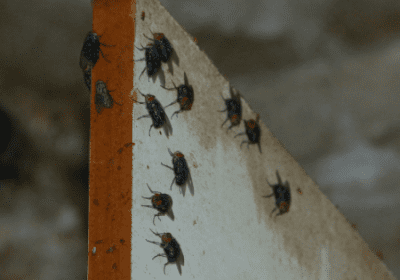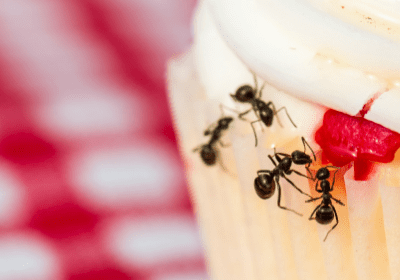It’s finally happened, fall is here! As the days get cooler and the leaves start turning, the mice are beginning to pack it in for the winter. For those who have had mouse problems during the summer, these problems will grow into full on mouse infestations during the fall and winter months.
Why Are Mice Attracted To My House?
As the temperature continues to decrease, rodents begin searching for heated shelter with access to food and water. Whether it be residential or business, buildings are the ideal spot for mice to live comfortably during the harsh Ontario winter.
If a mouse can fit its head through a crack or crevice it will easily make its way into your home. The most common entry points for mice are cracks in walls, doors, windows, pipes and last but not least, through roof vents or shingles.
Mice are more likely to be attracted to homes that:
 Have an unkempt gardens.
Have an unkempt gardens.
Mice hide in plants and fallen leaves, making them searching your home for an entry point more difficult to notice.- Have garbage or debris piled on the property.
Piled garbage gives mice shelter and protection while looking for an entry point into your home. These piles also supply a source of food for mice and will actively attract them. - Have not weather proofed.
Not only does weather proofing help control the temperature in your home over the winter, it also helps seal areas most prone to mice infiltration. Inspecting and replacing your homes weather stripping helps seal any cracks around your doors or windows that would allow mice into your home. - Have not sealed entry points.
Checking the exterior of your home is the best way to ensure that all small holes large enough to allow mice infestations are properly closed. Sealing around cable wires, vents, plumbing and weather stripping will lessen your chance of mouse infestation. If your home has been renovated or had repairs done within the summer months also check those areas as well.
How Do I Identify A Mouse Infestation?
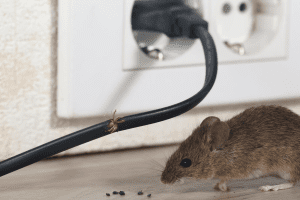 82% of homes in North America have been found to have mouse allergens in them. These means that while you may not currently have an infestation, you have most likely had mice in your house at some point in time. Identifying a mouse infestation is not difficult. Mouse droppings are the biggest indicator of mice infestations. Mouse feces are small brown-black pellets and are most commonly found in the kitchen within cupboards, drawers and behind appliances, or in basements, attics, garages and sheds.
82% of homes in North America have been found to have mouse allergens in them. These means that while you may not currently have an infestation, you have most likely had mice in your house at some point in time. Identifying a mouse infestation is not difficult. Mouse droppings are the biggest indicator of mice infestations. Mouse feces are small brown-black pellets and are most commonly found in the kitchen within cupboards, drawers and behind appliances, or in basements, attics, garages and sheds.
One single pair of mating mice in your home can produce a colony of 200 mice within a four month time span. Determining the size of your mouse infestation can be done by assessing the amount of droppings found within your home. The more droppings found, the larger your infestation is.
One should never vacuum or sweep mouse droppings, as these methods actually release more bacteria into the air. This bacteria can make humans very sick. Pest Kings Wildlife & Pest Control recommends spraying a disinfectant directly to the contaminated areas and letting it sit for about five minutes before using a paper towel to wipe the area. Remember to always wear a mask and gloves when handling wild animals or their feces.
What Problems Do Mouse Infestations Cause?
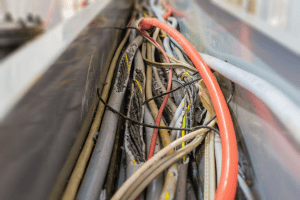
- Damage to your home. Mice are notorious chewers and will chew through drywall and wires.
- Risk of spreading diseases such as hantavirus pulmonary symdrome, which is fatal to homes.
- Risk of spreading fleas to your household pets. Fleas hosted by mice are known to carry lymphocytic choriomeningitis virus. This disease targets people with low immune systems like the elderly or children.
How Do I Get Rid Of Mice?
Once you have determined that your home or business is infested by mice, it’s important to control the situation before it becomes out of control. Many home owners will choose to take matters into their own hands rather than spending money on a wildlife control expert.
DIY Mouse Control Methods
The most common do it yourself methods to rid your home or business of mice are snap traps, glue traps, poison pellets and bait stations.
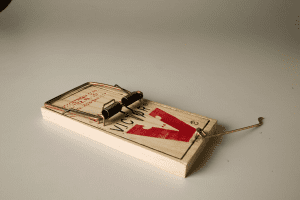
Snap Traps
Rodent snap traps can be bought at your local hardware store and range in price from $5-$20 depending on the brand and the mechanics of the trap. These traps are baited, then placed in the areas of your home you suspect the mice are most active. When a mouse ventures to eat the bait a trigger system will engage killing the mouse immediately. Remember to wear a mask and gloves to dispose of the dead mouse.
Glue Traps
Glue traps can be bought at your local hardware store and range in price from $5-$10. These traps are sheets of adhesive. Mice are baited to the sticky trap, where they get stuck and die of panic, suffocation if their nose gets stuck to the trap, starvation or injury while trying to escape. Pest Kings Wildlife & Pest Control does not recommend using glue traps as they are cruel, cause severe suffering to the animal and do not rid you of mouse infestations.
Poison Pellets
Poison pellets can also be bought at your local hardware store. They range in price from $20-$50 depending on the amount you purchase. These pellets generally use corn based products that interfere with the animals digestion, causing death by dehydration. This process can take anywhere from 4-7 days after ingestion. Pest Kings does not recommend using poison pellets when dealing with mouse infestations. This method is harmful to the environment and can be ingested by unintended targets. Children and house pets have been known to eat pellets found on the ground. Poison pellets are not worth the risk.
Bait Stations
Rodent bait stations can be found at your local hardware store and range in price from $5-$100. Like the name suggests, bait stations are enclosures that hold poison baits. This method uses the same poison as described above but eliminates the risk of children or house hold pets ingesting the poison.
How To Eliminate The Problem
All of the DIY methods above miss the point and won’t solve your problem. These methods will kill individual animals but it will not remove their nest or close entry points into your home. Dead mice in your walls will cause odor, bacteria and possibilities of spreading disease.
Poisons and traps will not get to the root of your infestation. Permanent solutions offered by licensed pest control technicians are necessary for insuring permanent results.
Pest Kings Wildlife & Pest Control offers a variety of removal methods for mouse infestations including 100% humane control. Read more about our mouse removal services here or call us at 647-988-5034.

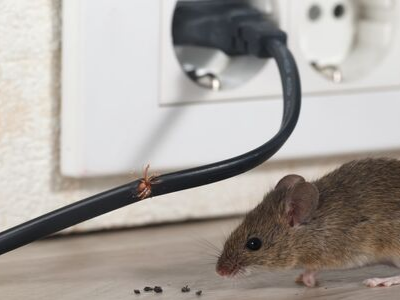
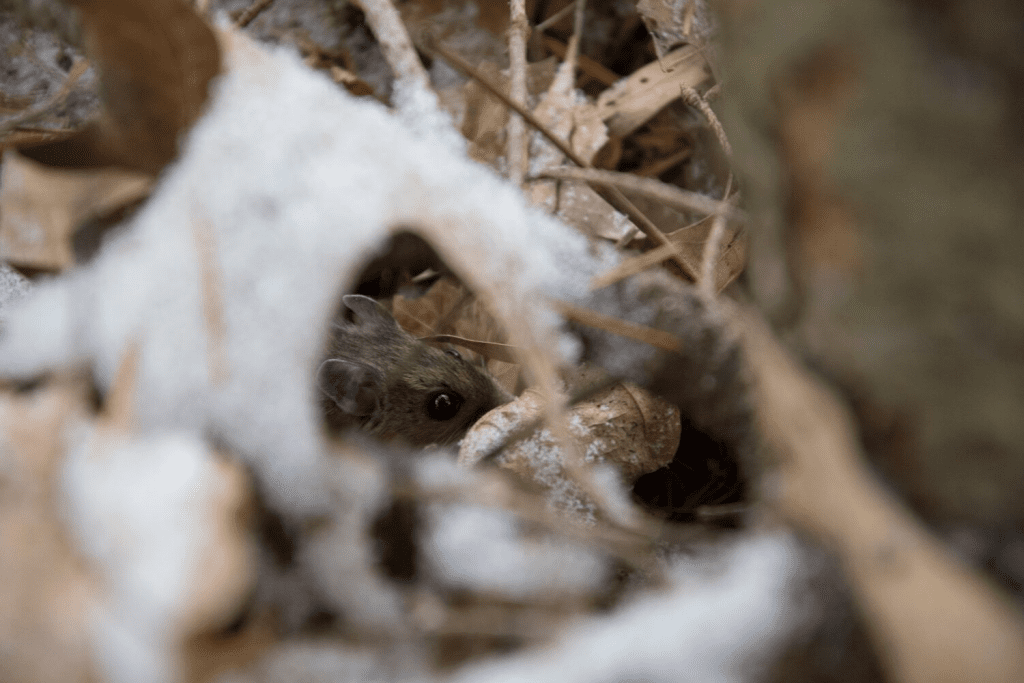 Have an unkempt gardens.
Have an unkempt gardens.
